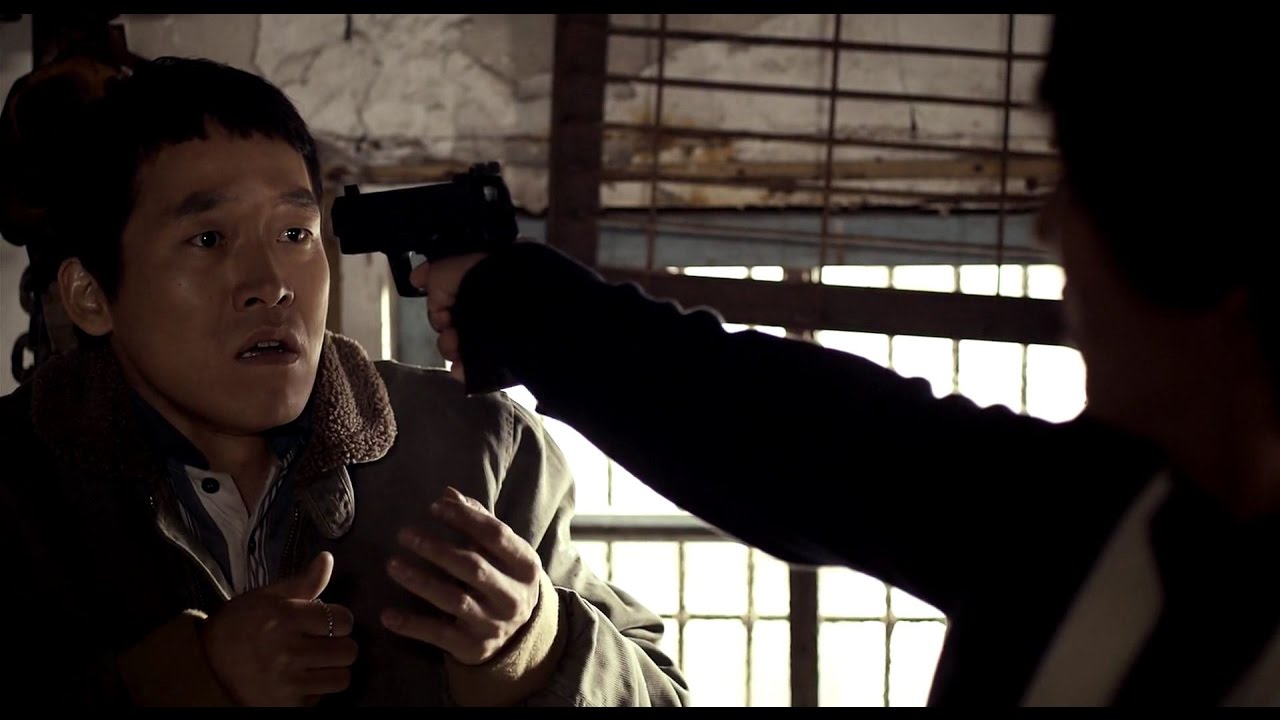By Chlotrudis Independent Film Society
Rating: 4 cats
Director: Juhn Jai-hong
Starring: Choi Moo-Seong | Kim Gyu-ri | Kim Jong-soo | Yoon Kye-sang | Yu Ha-bok

Original language title: Poong-san-gae
Country: south_korea
Year: 2011
Running time: 101
IMDB: http://www.imdb.com/title/tt1773020/
Jason says: “I sometimes wonder if Kim Ki-duk has a whole cache of unfilmed scripts on his laptop, turned out quickly because not writing dialogue for your main character saves a lot of time. It makes for a distinctive style, so that even what might otherwise be a straightforward spy movie actually directed by Juhn Jai-hong undeniably has Kim’s stamp.
“Though the border between North and South Korea may be the most heavily guarded such line in the world, there is one man who passes through it regularly. Leave a note on a bulletin board near the Imjinak Bridge, and this anonymous man (Yoon Kye-sang) known only by the Poongsan-brand cigarettes he smokes will smuggle messages and small items to the other side. The governments are mostly unaware of him, at least until some of his clients are busted selling smuggled artifacts. Then, the KCIA contacts him; they’ve got a North Korean defector (Kim Jong-soo) who is dragging his feet until he is reunited with his young lover In-ok (Kim Gyu-ri).
“Main characters not talking may be a Kim Ki-duk signature, but it works to fairly good effect here. Mostly, that’s because it is more or less impossible to get any sort of information on the background of this ‘Poongsan’ guy; though he’s clearly well-trained, there’s no way to find out whether he was originally born in the North or the South, whether by admission or accent, something which the South Korean intelligence officers obsess over. It’s an interesting question as to whether this makes him Korean-without-an-adjective or a man without a country. It makes for interesting comparisons with other characters who have crossed the line: In-ok considers herself North Korean and doesn’t seem to consider how difficult it might be to go back; the defector is trying very hard to make himself South Korean; some members of an undercover NK team may be going native. As much as stories like this generally focus on how Korea is naturally a singular entity, the pessimistic read here is that too much time may have passed: The message Poongsan carries in the beginning is between two very elderly people on their deathbeds, and there seems little common ground otherwise.
“Of course, this movie isn’t primarily a meditation on the two Koreas and how their residents self-identify; it’s a thriller that’s right up there with many of the other genre films South Korea has produced in recent years. Juhn does an impressive job early on of establishing both how well-guarded the border is while also making Poongsan’s crossings believable – first demonstrating a successful transit step-by-step and then repeating it under more difficult circumstances, inviting the audience to puzzle things out. The second half of the movie piles a bunch of characters on top of the Poongsan/In-ok/defector triangle, and while the dearth of names and straightforward exposition may make it a little difficult to keep side straight at times, director Juhn and writer Kim build a believable, exciting lattice of blackmail, betrayal, and double-dealing that has Poongsan serving a multitude of masters. It’s not surprising at all when the last act takes a vicious turn – although it’s impressive just how symbolic the violent finale is, a bloody but incisive commentary on just how much good a divided Korea does anyone.
“Throughout it all, Yoon Kye-sang is impressive. Poongsan is a very physical role in more ways than one; he not only has to sell himself as being thoroughly capable when it comes time to throw down, but communicate what’s going on with the character as a human being through body language and other wordless means. He manages both, comporting himself well in the action scenes and giving Poongsan an individual personality. A lot of other actors might not be up to that (or asked to do so by the filmmakers), but Yoon manages to make him a silent, mysterious figure while also being able to be cocky, irritated, or kind. The one place that maybe disappoints is the chemistry between him and Kim Gyu-ri; as much as they work together nicely at the start, the attraction between them takes a while to sink in – it’s believable toward the end, but hard to see when people are initially commenting on it. Ms. Kim is quite good otherwise, though – she plays ambivalence about being plucked from the North and dropped into this superficially more comfortable situation quite well without resorting to spouting slogans. Kim Jong-soo plays a much simpler character, but even his defector has more going on than he talks about – a sense that he’s trying to inflate his value to his new hosts, or a rather undemocratic condescension toward his girlfriend.
“At times, the central quirk of the movie seems a bit of a paradox – Poongsan’s silence makes much of the rest work, but sometimes rings false itself. Get past that, though, and there’s a thriller that’s as uncommonly smart as it is satisfyingly brutal to be found. 4+ cats
“Seen 5 August 2012 in Concordia University Cinema de Seve (Fantasia 2012 Camera Lucida, HD)”
